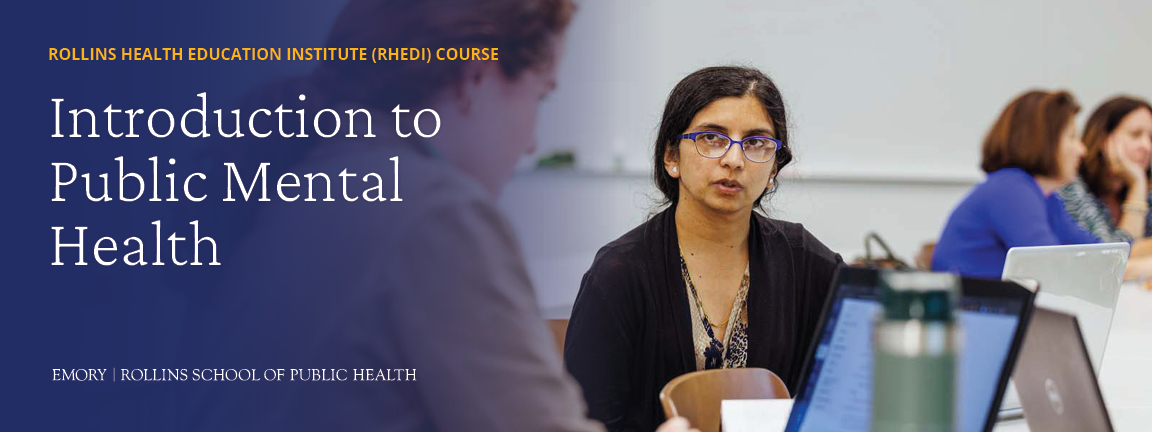Explore emerging issues in public mental health.

Introduction to Public Mental Health
Thank you for your interest in this course. This course is no longer open for enrollment. Explore other RHEDI course offerings that are now available.
- Researchers who want to explore the integration of mental and physical health
- Public health practitioners who want to examine best practices for mental health prevention intervention approaches
- Public health practitioners who want to understand various mental health treatment frameworks at the population level
- Professionals seeking to understand current issues related to access to mental health services
Mental and behavioral health affect all members of society and all aspects of life. It is estimated that 1 in 4 adults in the U.S. suffer from a mental or behavioral disorder, and mental and neurological disorders reflect many of the top causes of disability worldwide. Unfortunately, suicide is among the leading causes of death for adolescents and emerging adults in the U.S. Further, physical health challenges can lead to mental health challenges, and vice versa. Thus, it is critical that approaches to public health are informed by public mental health.
This course will cover questions of prevalence, specific communities affected, causal frameworks, prevention and treatment intervention strategies, and services and policy considerations, through a public health frame with emphasis on a life course perspective and health equity.
- Explore mental disorder constructs, classification systems, and measurable features
- Define ways to measure and communicate population burden estimates for mental disorders
- Describe the populations most affected by mental and behavioral health issues
- Examine how different etiologic frameworks in mental health inform prevention intervention and policy
- Examine social determinants of mental health
- Review prominent treatment strategies for mental health disorders
- Explore the design, evaluation, and implementation of preventive interventions
- Examine the types of mental health service provision, barriers to care, and the role of policy
Faculty

M. Daniele Fallin, PhD
James W. Curran Dean of Public Health Professor, Epidemiology

Delia Lang, PhD, MPH
Executive Associate Dean for Educational Affairs
Professor, Behavioral, Social, and Health Education Sciences
Questions? Contact us at rsph.ed.institute@emory.edu

